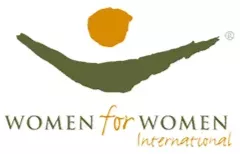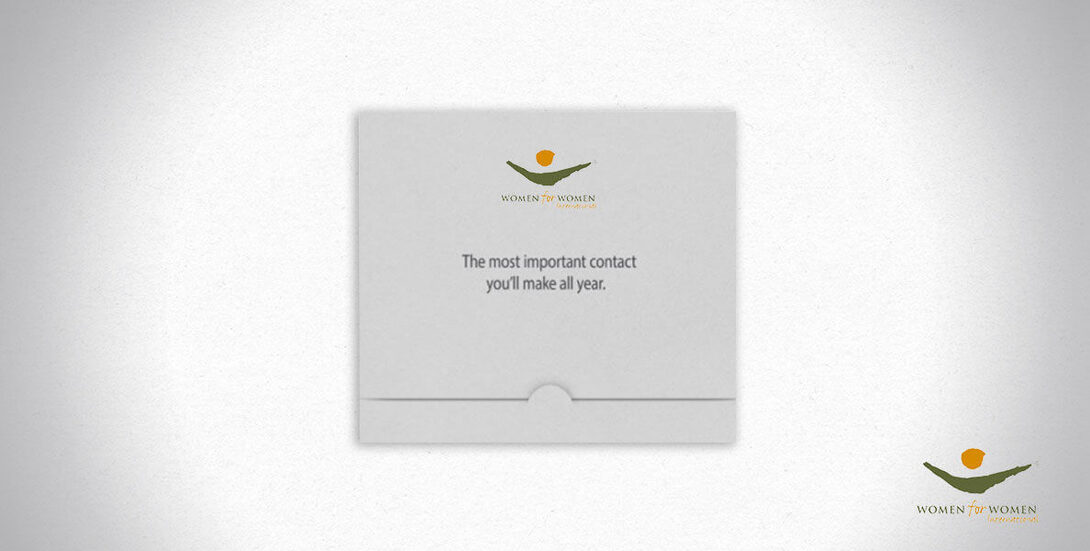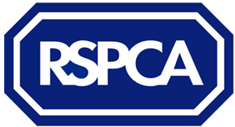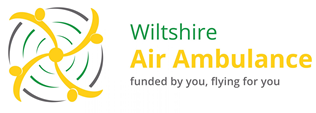Women For Women International


Background
In war-torn countries, women suffer unimaginable horrors. Raped, mutilated and abused they are left with no future once the militia moves on.
Women for Women International – a small charity led by passionate women – set out to transform the lives of women living in dire circumstances. The charity enters villages, identifies trades in need and trains women to read, write and run a business.
But, to support just one woman, Women for Women International needed a monthly donation of £22 for 12 months – a high amount of commitment.
With only a small budget to acquire new sponsors, the charity knew that they had to be clever in their targeting, focused in their message and create a campaign that would stimulate word of mouth.
Solution
Their starting point was to identify their target audience. Knowing that successful women like to help and mentor other women, they set out to reach professional women who had both the financial capability to meet the high monthly donation and would pass the message on to their peers.
Networking is hugely important to this audience. Mail allowed Women for Women International to introduce them to ‘the most important contact they would make all year’ – and asked them to, quite literally, turn a women’s life around.
Instead of the typical fundraising approach, the charity employed a more respectful, empowering strategy. Deliberately minimalistic and direct, it avoided any image of the woman herself, relying solely on the power of copy.
Prospects were mailed a simple business card, with the name and title of a woman on one side e.g. ESTHER MUKUNDE, WIDOW, GENOCIDE SURVIVOR, ILLITERATE.
On turning the card over, the recipient would see her title changed: ESTHER MUKUNDE, BUSINESS OWNER, EMPLOYER, INSPIRATION.
The card included a provocative and thought-provoking call to action: SUPPORT A WOMAN, NOT A CHARITY.
Taking the unusual approach of mailing women in their workplace meant that the charity could connect with them in their professional role.
Mail was also highly effective in placing the business card straight into the hands of working women. The tangibility of the media effectively brought to life the opportunity they would have to turn a woman’s life around.
Results
One small card made a big impact.
The campaign increased sponsor numbers by 74% and was highly efficient in doing so with a 6:1 ROI.
Word of mouth was integral to the success of the campaign – doubling its impact.
Research showed:
- 50% of respondents had become a sponsor as a result of being shown the card by someone else.
- 75% also said they would pass on the card themselves
And women liked the campaign:
- 100% of respondents agreed with the statement “different to the usual charity marketing approach”
- 75% though it was “clever”.
This conversation starter approach also helped the charity in other ways, initiating discussions about brand partnerships and opening opportuntiies within women's networks.
Source: Women for Women - DMA Award Winner Gold




